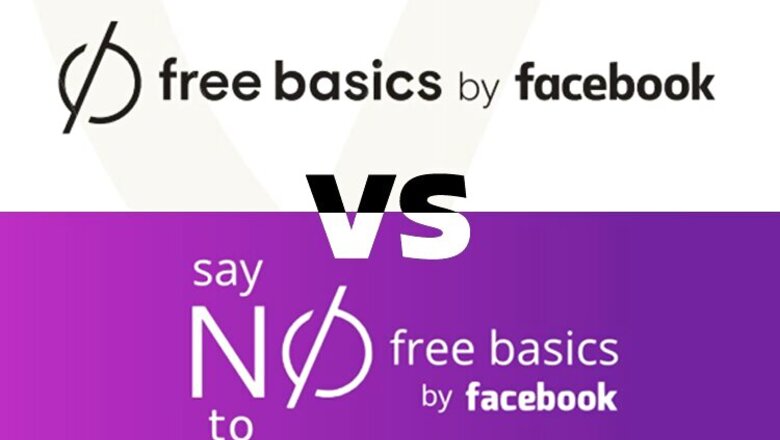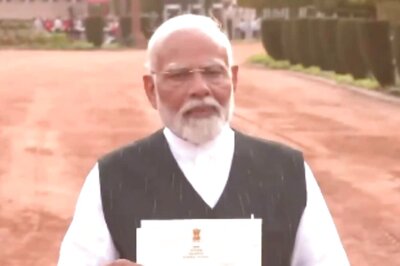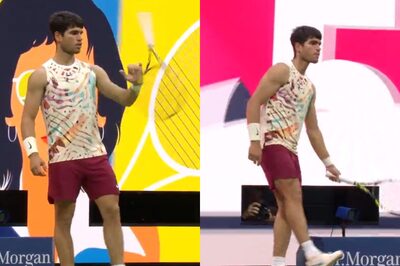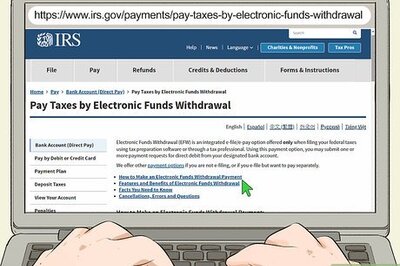
views
Facebook's media onslaught to garner support for its controversial Free Basics program is almost inescapable. Multi-page ads in national dailies, outdoor hoardings, television spots and perhaps the most effective of them all - Facebook notifications.
Facebook co-founder and CEO Mark Zuckerberg, took out time during his paternity leave to pen an op-ed in The Times of India in which he tried to drum up support for the Free Basics service that offers people without the Internet free access to a handful of websites through mobile phones.
"If we accept that everyone deserves access to the Internet, then we must surely support free basic Internet services," Zuckerberg wrote, comparing the Internet to a library, public health care and education.
Zuckerberg said he was surprised that there is such a big debate around Free Basics in India.
The debate on Net neutrality stirred across India after Airtel decided to charge separately for Internet-based calls but withdrew it later after people protested. Internet activists and experts flayed the operator for 'Airtel Zero' service along with Facebook's Internet.org service, later renamed as 'Free Basics.'
Net neutrality implies that equal treatment be accorded to all Internet traffic and no priority be given to an entity or company based on payment to content or service providers such as telecom companies, which is seen as discriminatory.
Zuckerberg's personal appeal comes amid fierce criticism from Net neutrality activists who say Free Basics violates the principle that the whole Internet should be available to all and unrestricted by any one company.
In an op-ed response in The Times of India by Medianama's Nikhil Pahwa, who is also a volunteer with savetheinternet.in that is spearheading the campaign for Net neutrality and against Free Basics, asked why Facebook didn't opt for an option that doesn't violate Net neutrality and "why has Facebook chosen the current model for Free Basics, which gives users a selection of around a hundred sites (including a personal blog and a real estate company homepage), while rejecting the option of giving the poor free access to the open, plural and diverse web?"
Countries like the US, Chile, Netherlands and Brazil have already adopted Net Neutrality that doesn't allow discrimination of Internet content or charge users differently based on the content, site, or platform they consume, the debate is still raging in India with the last date for comments on a paper floated by the Telecom Regulatory Authority of India (TRAI) that is open for comments till December 30 and counter comments till January 7.
Facebook is using the might of its about 140 million user base in India urging them to send messages to TRAI supporting Free Basics.
A few companies such as Truecaller is attempting to counter Facebook's push by sending out messages to its millions of users in India asking them to petition TRAI against Facebook's Free Basics.
Earlier this month the TRAI ordered Reliance Communications, the sole mobile operator for the Free Basics in India, to suspend it temporarily.
Pranesh Prakash, policy director at Centre for Internet and Society, believes that Free Basics isn't exactly the evil that opponents picture it as. "In the absence of free Internet, Free Basics is a great enabler of freedom of speech. We ought to keep that in mind when asking for a ban," he said.
Meanwhile, Facebook's Internet.org vice president Chris Daniels, in a Reddit AMA said that Facebook was open to scrutiny of the process by any third party agency like IAMAI or NASSCOM and "We'd also be happy to have Twitter, Google+, etc on the platform which many people have asked for."
Earlier, in July this year the Department of Telecom panel on net neutrality has opposed projects like Facebook's Internet.org, which allow access to certain websites without mobile data charges, while suggesting that similar plans such as Airtel Zero be allowed with prior clearance from TRAI.




















Comments
0 comment